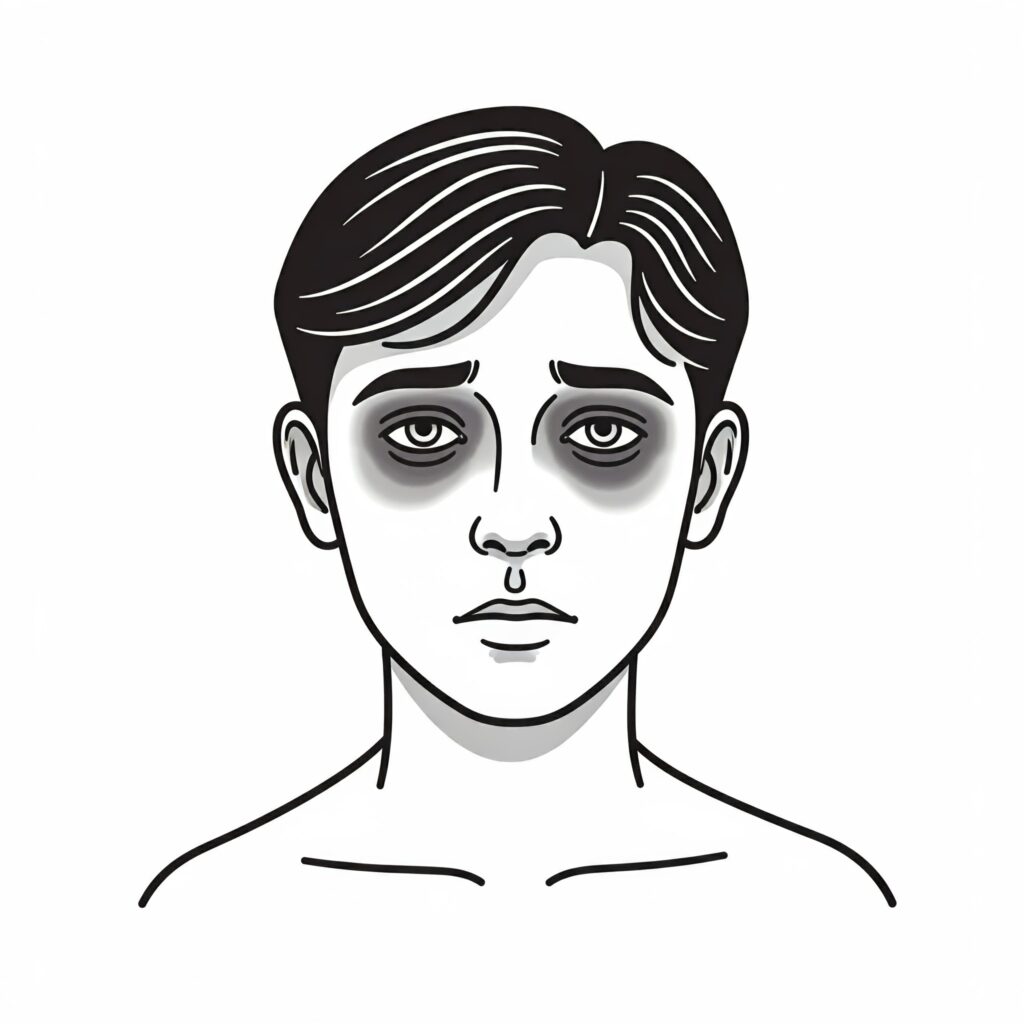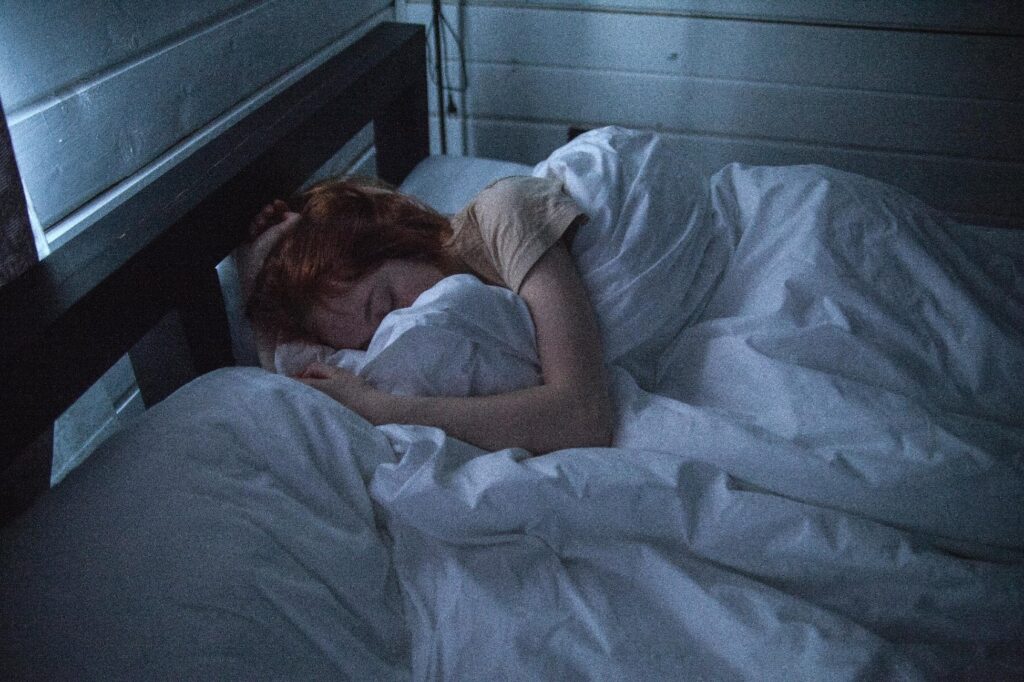Hypertension, most commonly referred to as high blood pressure, is an ever-present health condition that often snowballs into grave health concerns. While many people concentrate on diet and exercise to reduce hypertension, they tend to ignore sleep.

Sleep quality is a factor that plays a very significant role in the management of hypertension and cardiovascular health in general. In this blog, we are going to talk about the relationship between hypertension and sleep, the lifestyle modifications for hypertension and the best sleeping techniques so as to control high blood pressure.
Table of Contents
Hypertension: Understanding
Hypertension, more commonly referred to as high blood pressure, refers to a condition in which the force of blood against the walls of arteries is consistently high. This condition develops when the heart must pump its blood more forcefully due to narrowed or stiffened arteries. Eventually, this pressure will cause damage to the blood vessels in such a way that it leads to the risk of dangerous diseases that prevent access to a healthy cardiovascular system, strokes, kidney problems, and many other complications.

The two figures that constitute the measurement of blood pressure are systolic and diastolic pressure, in millimeters of mercury (mm Hg). Systolic pressure refers to the pressure in the arteries when the heart is contracting and pumping its blood supply. The second number, diastolic pressure, will refer to the pressure in the arteries when the heart is resting between beats. In general, normal blood pressure should read below 120/80 mm Hg. Hypertension is diagnosed when the readings are constantly more than 130/80 mm Hg.
There are two kinds of hypertension that have been identified: primary (essential) hypertension and secondary hypertension. Most people suffer from the former kind of hypertension, which develops progressively over time as a result of factors such as aging, genetic tendency, poor diet, sedentary lifestyle, and stress. Secondary hypertension is rooted in other medical conditions, such as kidney disease, hormonal imbalance, or use of certain medications.
This is sometimes considered a “silent killer” because the symptoms usually do not occur until serious damage has occurred. For that reason, regular assessment of blood pressure is important, particularly for individuals at risk, such as people who are overweight or inactive, smokers, frequent drinkers of alcoholic beverages, or with a family history of high blood pressure.
Fortunately, high blood pressure is easy to manage. To help treat it, treatment will involve lifestyle adjustments combined with medication. Some of the key steps involve adopting a healthy diet with an emphasis on fruits and vegetables, low sodium intake, routine physical activities, stress management, and a healthy weight. Regulations in the level of blood pressure are achieved with a variety of medications such as diuretics, beta-blockers, ACE inhibitors, and calcium channel blockers to which many are administered. Monitoring of the patient is also essential in follow-up on patient progress and to ensure that blood pressure stays in its physiological range.
The Relationship Between Hypertension and Sleep
It is well proven without an iota of doubt that poor sleep is related to high blood pressure. Sleep is a process that paves the way as it allows the body to make repairs and ensures its functions are held stable at manageable levels, including blood pressure.
For instance, it occurs during sleep blood pressure will reduce by, like 10-20%, allowing the heart and blood vessels to get some rest. Research calls this nocturnal dipping. Those who suffer from sleeping disorders or who do not get enough rest, though, miss this important time of lowered blood pressure.
Sleep Apnea and Hypertension:
Obstructive sleep apnea is the most common manifestation of sleep apnea characterized by repeated breaks in airflow even during sleep. These pauses in breath cause the oxygen levels to fall and create a stressor in the body, which is the cause of the rise in blood pressure.
Most research studies seem to suggest the fact that untreated OSA poses a higher risk of developing hypertension.
Insomnia and Hypertension:
Chronic insomnia, the difficulty in falling and staying asleep, also puts into action the elevation of high blood pressure. The body’s fight-or-flight response that occurs due to the stress or anxiety related to insomnia raises high blood pressure.
Sleep Duration Drive and hypertension:
short sleep duration (<6 hours every night) and long sleep duration (>9 hours every night) are associated with elevated blood pressure. The duration that works best for most adults is 7-8 hours every night.

Diet:
A heart-healthy diet can dramatically reduce hypertension. The DASH diet, full form Dietary Approaches to Stop Hypertension incorporates fruits, vegetables, whole grains, and low-fat dairy products, which is proved to reduce blood pressure. Decreasing the intake of sodium and increasing the intake of potassium, magnesium and calcium also assist in reducing the blood pressure.
Physical Activity:
Regular exercise strengthens the heart and improves blood flow. All this helps to lower blood pressure. Try to exercise at least 150 minutes over moderate intensity. For example, one can engage in brisk walking, cycling, or other activities in a week.
Weight Management:
Weight management plays a vital role in keeping blood pressure under check. Even a small amount of weight loss can make a big difference in blood pressure levels.
Managing Stress:
Long-term stress is another contributor to hypertension. Stress-reducing activities, such as meditation, yoga, deep breathing, and other hobbies, help to keep the situation under control. Avoid excess in taking alcohol and tobacco: These two habits raise the blood pressure levels. Following moderation in alcohol intake (one drink for a woman per day and two for a man) and avoiding tobacco use in general are really good ways to keep hypertension in check.
Medication:
Lifestyle changes may not work solely for some individuals. Medication for high blood pressure may be prescribed by a health care provider. Be ready to listen with your doctor to potential hypertension medication side effects and to any of your concerns.
Best Sleep Techniques to Control High Blood Pressure
Improving your sleep quality is an important component of high blood pressure care and management. Here are some of the best sleep techniques:
Set a regular active schedule:
Go to bed and wake up at the same time every day, even on weekends. Regularity supports the body’s internal clock adaptation and prepares your body for a night of good sleep.
Establish a pre-sleep routine:
Develop a set of activities that will relax your mind and body in preparation for sleep—anything from reading to taking a warm bath, or doing light stretches.
Make an optimal sleeping environment:
Make the bedroom cool, dark, and quiet. Quality of the mattress and pillows and devices or electronic gadget-free time with devices that emit blue light, as it affects sleep. End caffeine and heavy meals: Caffeine and heavy meals should not be taken, especially close to the bedtime period. They are both culprits in digestion and nervous stimulation.
Practice Relaxation Techniques:
Add on some relaxation techniques, like progressive muscle relaxation, mindfulness meditation, or simple deep breathing at the end of your bed time activities, to reduce the overall level of stress and help you fall asleep. Treat Sleep Disorders: If you think that you are suffering from some kind of sleeping disorder like apnea or insomnia, you need to see your doctor. An underlying sleep disorder can be treated while improving the quality of sleep and aid in maintaining normal blood pressure.
Look for a Sleep Pattern:
Maintain a sleep diary, through this you find what changes there needs to be in lifestyle or habits to improve the quality of sleep.
How Good Sleep Helps to Cut Down Hypertension

Good sleep pattern has much to do when it comes to managing high blood pressure. Some of the benefits include:
Lowers Blood Pressure:
Proper sleep ensures normal blood pressure because it allows time for the body to move through the dipping process, which happens at night. Consequently, there will be fewer burdens placed on the heart and blood vessels.
Keeps Stress Levels Low:
Quality sleep will help reduce cortisol, in other words stress hormones. Elevated levels of these hormones can cause high blood pressure.
More Efficacy of Drugs:
Undergoing antihypertensive medication, a good night’s sleep helps the body to respond better to such medication by making sure that the healing processes of the body carry on fine.
Better Heart Conditions:
Good quality of sleep leads to the improvement of the circulatory health of an individual by mitigating the risks of heart diseases and stroke, among others.
Conclusion
It is highly undeniable that hypertension has a very close relationship with sleep. It means that poor sleep can result in high blood pressure, while good sleep can largely improve the management of hypertension. By incorporating the best lifestyle changes to manage hypertension, you will be taking a lead in keeping high blood pressure within check and improving general well-being.
Once again, managing hypertension is multi-dimensional, and good sleep is absolutely necessary to maintain a healthy lifestyle. Discuss with a healthcare provider if worried about hypertension and sleep to outline a customized undertaking to address you.


